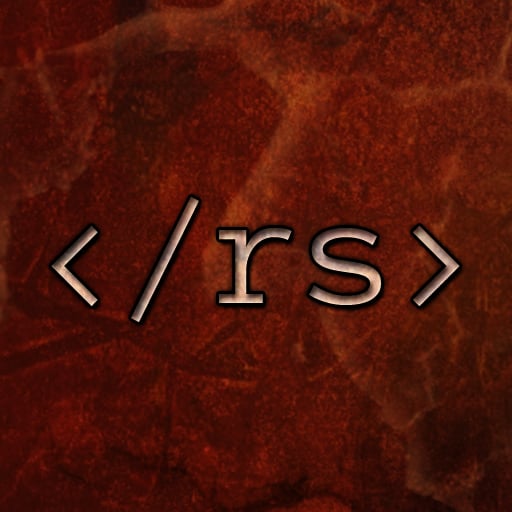Let’s get the AMAs kicked off on Lemmy, shall we.
Almost ten years ago now, I wrote RFC 7168, “Hypertext Coffeepot Control Protocol for Tea Efflux Appliances” which extends HTCPCP to handle tea brewing. Both Coffeepot Control Protocol and the tea-brewing extension are joke Internet Standards, and were released on Apr 1st (1998 and 2014). You may be familiar with HTTP error 418, “I’m a teapot”; this comes from the 1998 standard.
I’m giving a talk on the history of HTTP and HTCPCP at the WeAreDevelopers World Congress in Berlin later this month, and I need an FAQ section; AMA about the Internet and HTTP. Let’s try this out!
What’s the most impactful 418-related incident you’ve witnessed? I remember a few years ago npm went down and was returning 418 which spawned jokes and chaos across the web
The incident you mention is probably the most impactful, but there’s also the time the Russian military blocked IPs outside Russia by returning 418 instead of the more logical 403.
I know russian a bit and jargon for russian word “teapot” is also commonly used as “dummy” or “novice”. 418 for foreigners might have been on purpose there which brings Your April’s fool joke to a nation wide level :)
Yeah, I’ve seen people refer to this as the “fuck off” of response codes, especially during that incident. How does that make you feel?
It’s not up to Mr Masinter or myself to police the usage of anything defined in the standard; if people feel like being assholes regarding the issuance of 418 errors, at least they’re being whimsical assholes.
Could be worse; could be 200 with an error message inside, negating the entire point of error codes. I see that all the time.
When I was fixing up a legacy API app at an old job, I realized they did exactly that. I cleared it with my boss and started fixing up our error codes - pretty much all 401, 403, and 422. This blew up an integration with another app that literally threw exceptions on those codes rather than handling them. I died inside as it was my first software dev job. My first rollback of a change as well.
Yeah, GraphQL has adopted this practice as a standard and it’s kind of sad.
Is the internet still kept in Big Ben?
Yes, unless Jen needs to borrow it for a presentation.
I’m actually going to that conference! What’s the title of your talk? I’ll be sure to attend it!
Excellent. I’m on Stage 4 on the Thursday afternoon: “Brewing Tea Over The Internet”.
Should be fun times, see you there.
Thank you for fixing a critical flaw in the original RFC.
What did you think about the Save 418 Movement? Were you involved in it in any way?
My endorsement is at the bottom of that page, in fact. I wasn’t an active campaigner, but a word in favor was the least I could do.
Oops, RTFM. Well, thanks for fighting the good fight with the power of your reputation.
Was it hard to get this standardized back in the good ol’ days?
Do you think it would be as easy to do it now? If not, what challenges and hurdles would a RFC have to overcome?
The last thing I know that was pretty “significant” is the GNU Terry Pratchett header (https://en.m.wikipedia.org/wiki/Terry_Pratchett#Death) and that was a community effort.
There are joke RFCs almost every year, so it’s not unprecedented to add to the standards. This year, one of the additions was a Death Flag to TCP, to indicate when a connection is about to terminate. The RFC Editors are very approachable when it comes to the Apr 1st RFCs: a “real” standard would need to be drafted by someone actually in the field, but the Apr 1st’s are open to public submissions as long as you’re willing to redraft/edit in accordance with the documentation standards.
It’s worth noting that the Clacks header is an unofficial campaign, and hasn’t been standardised; the 'Pedia states that some 84,000 sites return X-Clacks-Overhead, and my own is one.
What’s your take on the fediverse frontier?
I think it’s excellent out here. I was stuck on Reddit for the longest time, and this recent debacle has pushed me to explore the networks at the edge; this feels a lot more like the Internet of old. The analogy of email is apt, I think, with the accounts on multiple servers and the interplay between.
You awaken my nostalgia, curiosity and sense of adventure when you say “explore the networks at the edge”. Are there any other networks than lemmy / mastodon that you would suggest checking out?
Internet Relay Chat’s been one of those things that’s always felt out on the edge. I’ve been on EFnet since perhaps '03, and it’s a lot quieter than it was…
With people moving en masse away from the centralized sites and their Firebase-implemented chats, we may see a pick up in traffic on the IRC networks, which would be good to see.
What are some interesting channels on EFnet? I basically grew up on Foonetic, but moved to Slashnet when #xkcd did. I don’t pay near as much attention to IRC as I used to, but would like to change that
I haven’t been exploring in the depths of EFnet in …many years. I’m confined to the programming-related channels I found in the Way Back When, nowadays: at the moment, #c is probably the most active and it’s almost all old-timers.
Are you tingly anywhere?
Are you by any chance, British?
Did the predilection for tea give me away?
What a British thing to ask. Very apt sir, very apt.
A new RFC for IPv7. It’s just IPv4 with an extra octet. Yes or no?
I don’t think the extra address space of IPv6 is the problem holding back its adoption, so “IPv4 with another octet” would likely run into the same issues.
Not that it’s a bad idea, it’s just an idea that’s unlikely to catch on.
What would you say is holding IPv6 back?
The biggest problem IPv6 has is that IPv4 has been so hugely successful: gargantuan resources have been poured into getting the world connected on IPv4, and the routers/etc deployed in the field (especially in sub-Saharan Africa, south Asia, and other places which got the Internet late) are built around version 4: data paths 32 bits wide, ASICs and firmware developed with 4-byte offsets, and so on.
It’s a big effort, and more importantly an expensive effort, to move all that infrastructure over for what the end user perceives as no benefit: their websites load just the same as before.
Are you saying there’s no financial incentive at the individual level to upgrade?
Essentially. If the end user is being asked to make a financial outlay to get to the same things they did before, it’s unlikely that will go down well.
Every once and a while I’d just like to see 200 get some love, but no. It’s all 404 this, 502 that.
I’m just “OK”. It’s like being the middle child of response codes.
username checks out
200 is probably the most common status no? Many successful responses will give 200 in the backend
OK
What a fun AMA topic lol. I dont have a question, I’m just glad youre here, spreading the good gospel of your goofy internet standard
I just found out about this on Brodie Robertson’s yt channel! I am not a teapot btw!!
Haha, same here! I was so proud I knew what the title was referring to before reading the post. Lol
Glad to hear it, you should walk around with a HTTP 418 hat so more people know you’re not a teapot.
But then people would think they are a teapot
We’re there any early internet standards you were super bullish on at the time that didn’t get picked up? In retrospect, if it had been adopted do you think it would have had the impact you were hoping for
That’s a tough one: most standards are codified as such because they’re already seeing wide use. The major example of one that’s been worked the other way around is IPv6: it’s been a standard for a very long time, and still doesn’t seem to be seeing adoption.
Of course, I wouldn’t say I was bullish on IPv6. 32 bits is enough for anyone, right.
Well there is really only one question…
Pineapple on Pizza?
Out.
Can’t stand pineapple at the best of times, on pizza is another level of wrong.
Hear hear
Getting really tired of this meme
Yes, obviously. Where else should it be at if not my pizza?
Do you regret adding it, or with the knowledge you have today, would you still add the 418?
Since a bunch of languages have not implemented it, or/and has long discussions about it:
https://github.com/dotnet/runtime/issues/15650
https://github.com/golang/go/issues/21326
https://github.com/nodejs/node/issues/14644
https://github.com/psf/requests/issues/4238
https://github.com/aspnet/HttpAbstractions/issues/915Sheesh, some people have no sense of humour.
Personally I don’t have any problems with it (if that was directed at me) - I’ve added 418 as “unhandled exception code” response to a bunch of applications, so I can easily differentiate whether my application is throwing an error, or whether it’s some middleware gateway AWS io-thing
I was just curious what OP thought about it, since in the early days it wasn’t uncommon to add goofs or easter-eggs into software, but nowadays not done so much… and apparently the “HTTP Working Group” doesn’t like it either… So I was curious whether OP though in hindsight whether it should’ve been added or not
How can it be unhandled? It’s right there in the song, just before the spout!
You’d have to catch up with Mr Masinter to get his opinion on adding error 418, I’m afraid; that piece of the business wasn’t my work.
I’m happy it’s there though: it may have sparked flamewars, but at this point what hasn’t. It does bring somewhat of that sense of humanity to the whole enterprise of working on the Internet.
I’m just finding out about this trivia now but I’m a big fan
I remember when I first learned of error 418 and it did really help me understand that the Internet as we know it was made and shaped by regular people with senses of humor. Helped make it seem a bit less daunting/intimidating to understand.
It reminds me of how the Network Port 666 is specifically reserved for doom, always love Easter eggs like that in officially used protocols.
I remember when I learned about this, I was working on an absurdly large project on my own. I was lost in all the details and losing hope of ever finishing. I was working on the backend API when I learned of this and took the time to implement the 418 response. It felt silly and brought the fun back to the project.
What code should be used if we are expecting something to be a teapot? In this scenario it seems a 4XX is inappropriate because there is no error
If you’re writing a TEA-compliant client, you’d send the BREW request and expect a 300 Multiple Options back, whereby the server will tell you which teabags are installed. You’re correct that there’ll be no error, unless all the bag stocks are out server-side.
That’d return 503 Service Unavailable, of course.













